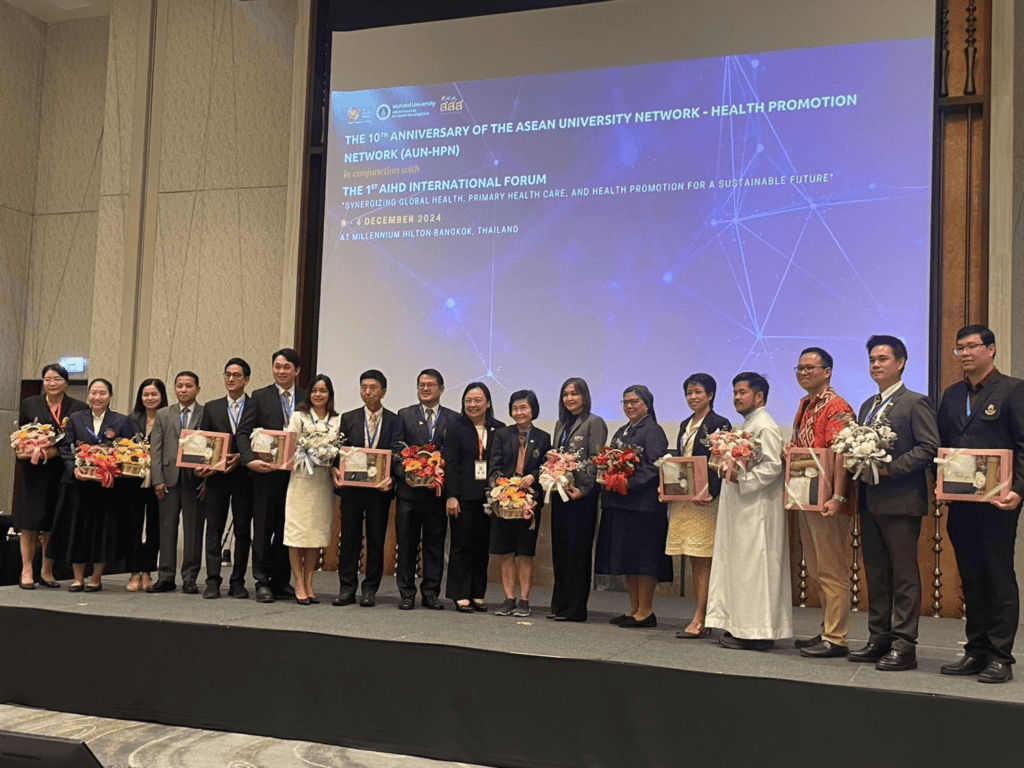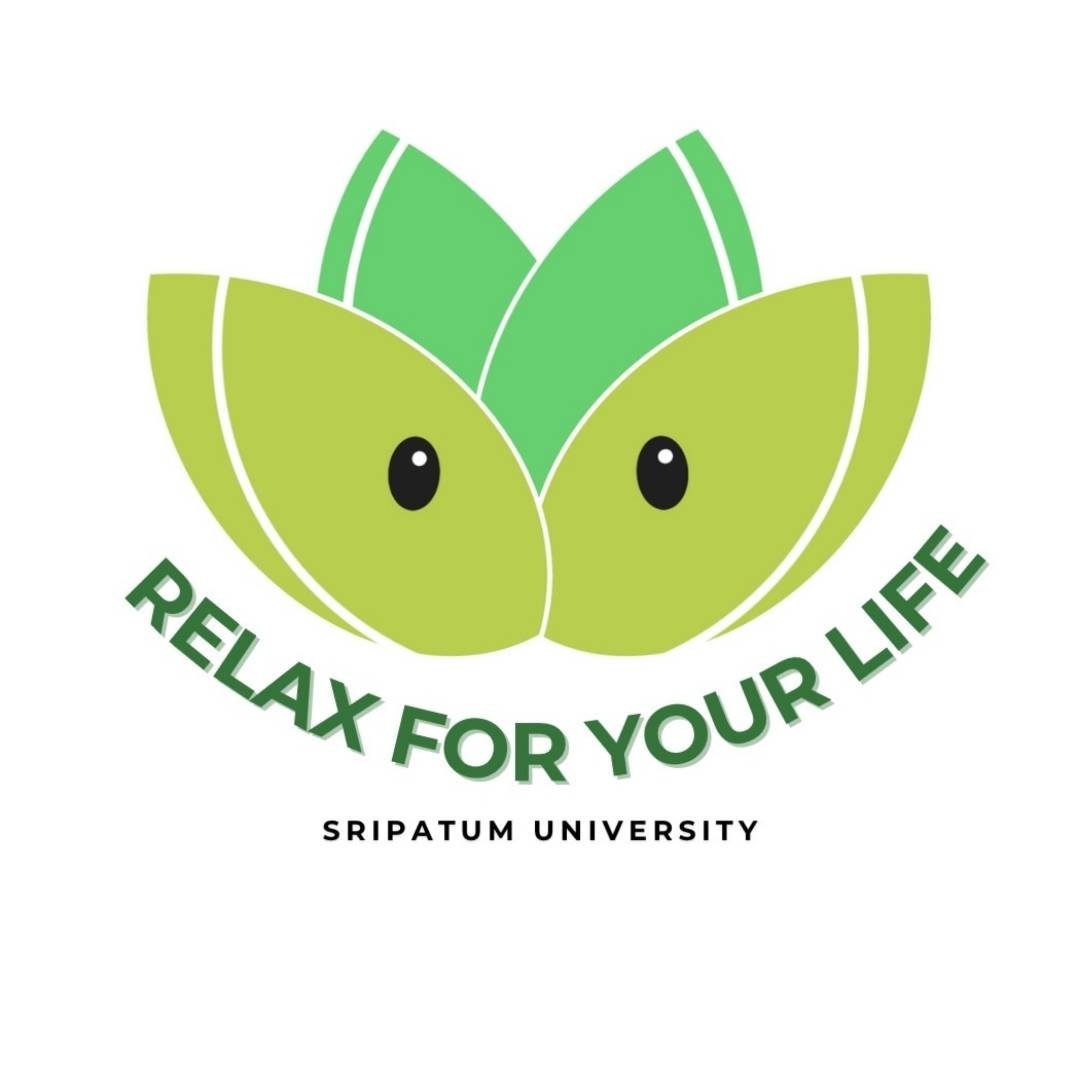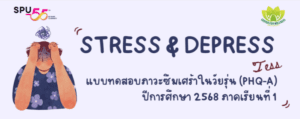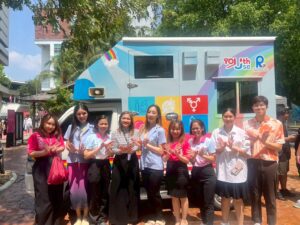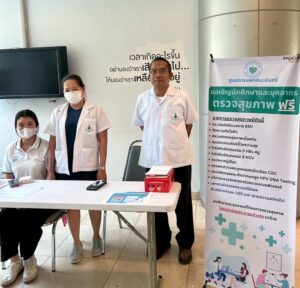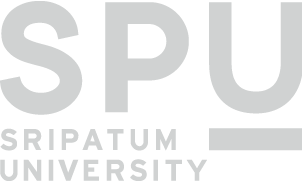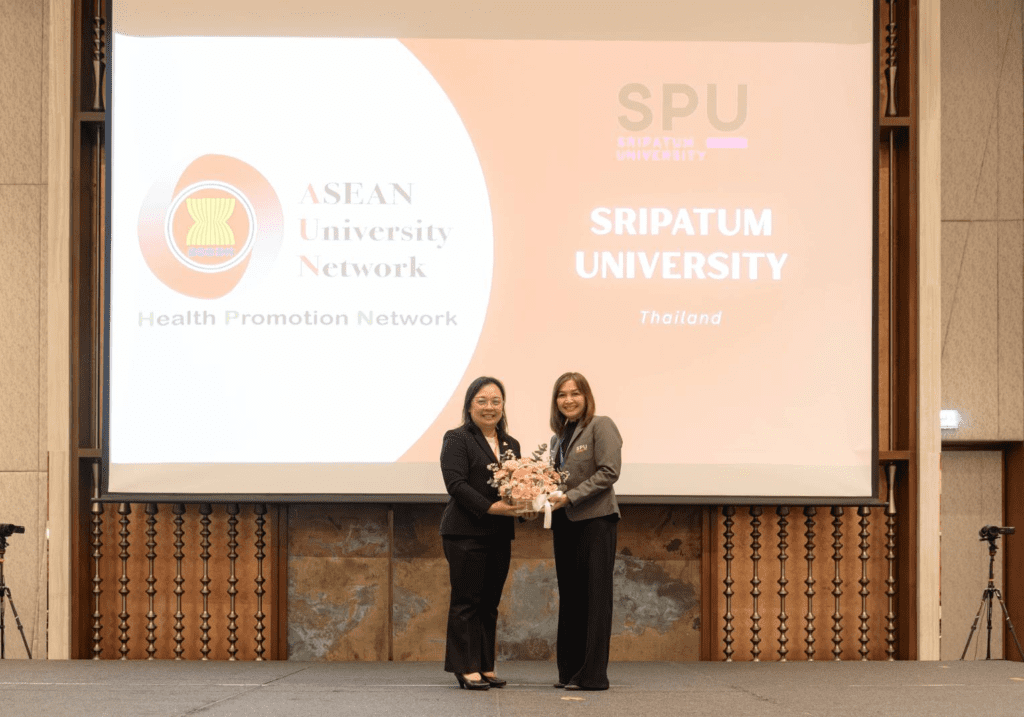
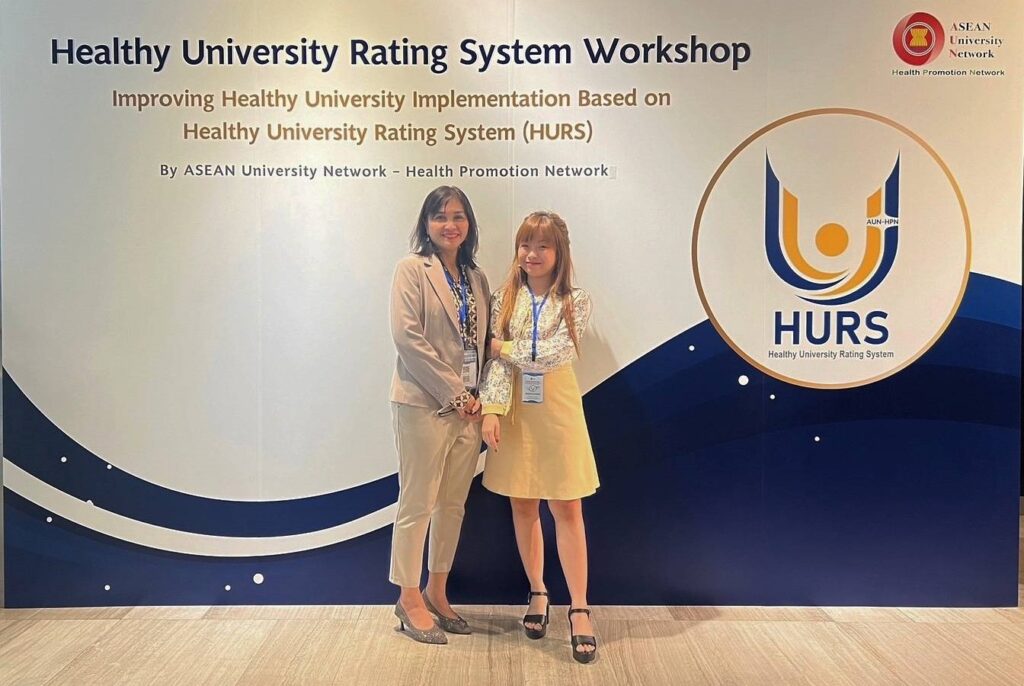
SPU Leads ASEAN in Healthy University Transformation under AUN-HURS Framework
Sripatum University (SPU) has made a bold leap toward regional health sustainability by joining the ASEAN Healthy University Rating System (AUN-HURS) in 2024. With a comprehensive implementation of the AUN Healthy University Framework (HUF), SPU now aims to become a model institution for well-being at both national and ASEAN levels. The initiative, driven by the Center for Health Promotion Counseling under the Division of Student Affairs, strategically embeds holistic health promotion across all faculties and administrative units.
This project is a direct response to the global and local surge of non-communicable diseases (NCDs) and mental health challenges, reinforcing SPU’s commitment to SDG 3: Good Health and Well-being. The university implements policies and action plans that align with 3.3.1 (health policy development), 3.3.5 (student mental health services), 3.3.6 (NCDs prevention), and 3.3.7 (staff mental health support). By fostering campus-wide physical and psychological wellness, SPU becomes a living lab for SDG integration.
The program also strengthens SDG 4: Quality Education by promoting lifelong learning (4.3) and co-curricular activities that enhance student competencies in health awareness, environmental consciousness, and civic engagement. Health-related knowledge is systematically woven into academic and student development activities, enabling students to grow in both intellect and well-being (4.1, 4.2).
Gender equality and inclusivity are key pillars, echoing SDG 5 with a strong emphasis on 5.1.1 (gender equity in participation), 5.6.3 (maternity protection), and 5.6.9 (equal health access). SPU ensures that all genders are represented, protected, and empowered through participatory health initiatives.
Addressing SDG 10: Reduced Inequalities, SPU transforms itself into a safe and inclusive space for all, especially marginalized groups, through initiatives supporting 10.2 (equity in health access) and 10.3 (inclusive campus design).
Meanwhile, the project links with SDG 11: Sustainable Cities and Communities by enhancing health resilience in surrounding communities (11.2.1, 11.2.3), strengthening local integration.
Most significantly, SDG 17: Partnerships for the Goals is at the core of this effort. SPU collaborates with national partners like Mahidol University and ASEAN stakeholders, exemplifying targets 17.2.1 and 17.3.1 through cross-institutional health promotion and integrated HURS evaluation protocols.
With 36 core participants and inter-departmental taskforces, the project sets a clear roadmap using the PDCA cycle, incorporating evidence-based evaluation, capacity-building workshops, and policy innovation.
Through this bold endeavor, SPU reaffirms its role not only as an academic leader but also as a champion of sustainable well-being for all—on campus, in Thailand, and across ASEAN.
SPU ก้าวสู่มหาวิทยาลัยสุขภาวะต้นแบบของอาเซียน ตามกรอบ AUN-HURS
มหาวิทยาลัยศรีปทุม (SPU) ก้าวสู่การเป็นผู้นำด้านสุขภาวะในระดับอาเซียนอย่างเป็นรูปธรรม ด้วยการเข้าร่วมระบบประเมินมหาวิทยาลัยสุขภาพที่ดีระดับอาเซียน (AUN-HURS) ในปี 2567 โครงการนี้ขับเคลื่อนโดยศูนย์ให้คำปรึกษาสุขภาวะ กลุ่มงานกิจการนักศึกษา โดยบูรณาการกรอบแนวคิด AUN Healthy University Framework (HUF) ที่ครอบคลุม 22 ประเด็นหลัก และ 42 ตัวชี้วัดอย่างรอบด้าน
ภายใต้เป้าหมายการพัฒนาอย่างยั่งยืน SDG 3: Good Health and Well-being มหาวิทยาลัยได้ดำเนินการตามตัวชี้วัด 3.3.1 (จัดทำนโยบายสุขภาวะ), 3.3.5 (สนับสนุนสุขภาพจิตนักศึกษา), 3.3.6 (ป้องกันโรค NCDs), และ 3.3.7 (สนับสนุนสุขภาพจิตบุคลากร) อย่างเป็นรูปธรรม สร้างวัฒนธรรมสุขภาวะที่ยั่งยืนทั้งทางกายและใจในองค์กร
ในด้าน SDG 4: Quality Education โครงการนี้เน้นส่งเสริมการเรียนรู้ตลอดชีวิต (4.3) และพัฒนาคุณลักษณะบัณฑิตที่พึงประสงค์ผ่านกิจกรรมสุขภาพ ซึ่งเชื่อมโยงกับความรู้ในรายวิชาและกิจกรรมเสริมหลักสูตร (4.1, 4.2)
ความเท่าเทียมทางเพศภายใต้ SDG 5 ยังเป็นแกนสำคัญที่มหาวิทยาลัยยึดถือผ่านตัวชี้วัด 5.1.1, 5.6.3, และ 5.6.9 โดยให้ความสำคัญกับความเสมอภาคในการเข้าร่วมกิจกรรมสุขภาพและการดูแลสุขภาวะของทุกเพศ
ภายใต้เป้าหมาย SDG 10: Reduced Inequalities มหาวิทยาลัยได้สร้างพื้นที่ที่ปลอดภัย ครอบคลุม และเป็นมิตรสำหรับนักศึกษาและบุคลากรทุกกลุ่ม โดยมีแนวทางลดความเหลื่อมล้ำในการเข้าถึงบริการด้านสุขภาพ (10.2, 10.3)
อีกทั้งยังสนับสนุนเป้าหมาย SDG 11: Sustainable Cities and Communities ผ่านการพัฒนา SPU ให้เป็นพื้นที่สุขภาวะของชุมชนโดยรอบ (11.2.1, 11.2.3)
และที่สำคัญ โครงการนี้ขับเคลื่อนตามแนวทาง SDG 17: Partnerships for the Goals อย่างชัดเจน โดยความร่วมมือกับมหาวิทยาลัยมหิดลและเครือข่ายอาเซียนในกรอบ AUN-HUF เพื่อยกระดับมาตรฐานด้านสุขภาพของภูมิภาค (17.2.1, 17.3.1)
โครงการนี้ประกอบด้วยผู้เข้าร่วมจำนวน 36 คน และดำเนินการตามวงจร PDCA อย่างครบถ้วน ทั้งในด้านการวางแผน การอบรม การติดตามผล และการปรับปรุงนโยบายอย่างต่อเนื่อง
SPU จึงไม่เพียงเป็นสถาบันการศึกษา แต่ยังเป็นต้นแบบด้านสุขภาวะและความยั่งยืนที่สร้างผลกระทบเชิงบวกให้กับสังคมไทยและอาเซียนในอนาคต
